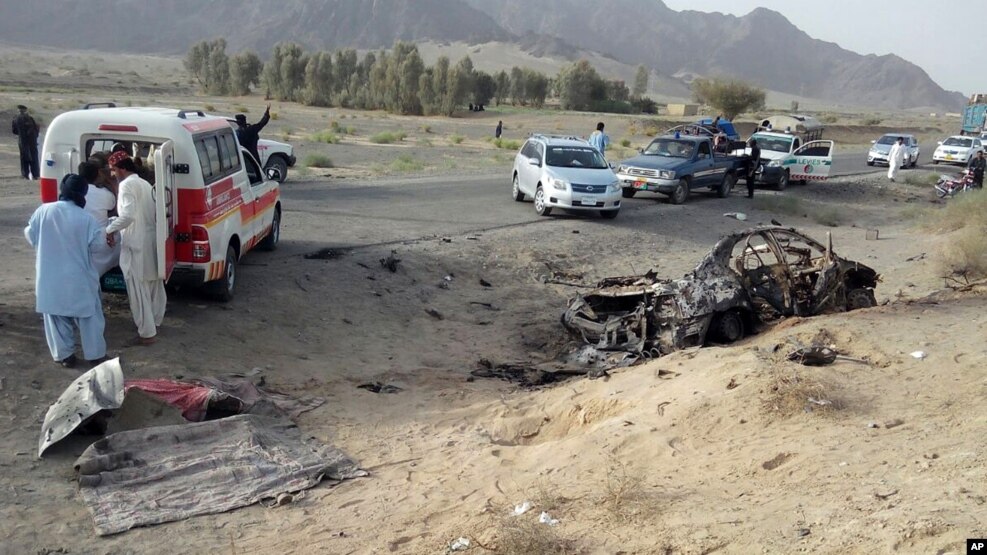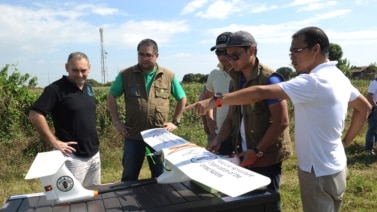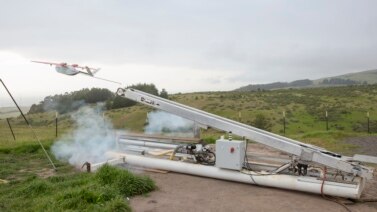
Rights groups are calling on the United States to release details about its secretive drone attacks around the world.
A recent U.S. drone strike in Pakistan led to the calls for more transparency. The leader of Afghanistan's Taliban was killed in that attack.
In the past, U.S. drone aircraft have hit terrorist targets in Yemen and Somalia.
Rita Siemion is with the group Human Rights First. She says the U.S. government should establish clear policies and provide real numbers on all its drone attacks.
“And, 'Just trust us. We have high standards. We are doing the best that we can,' really isn't enough.”
The administration of President Barack Obama has promised to provide this kind of information in a report soon.
The report is expected to list the number of combatants and civilians killed in U.S. drone strikes since 2009. It will not have information from active battle areas like Iraq, Afghanistan and Syria.
President Obama's spokesman, Josh Earnest, told reporters in March the report represents a big step forward for transparency.
“We wouldn't even acknowledge publicly that these things were taking place. So the fact that we're now in a position on a regular, routinized basis to publish the results and to quantify the totals about the impact of these operations -- I do think represents substantial progress in the direction of transparency.”
But Human Rights First and other critics of the drone policy believe it is not enough to just list the number of deaths and injuries. They say administration officials should also explain how they collected the data and how they define terms used in the report.
John Hannah worked as an adviser to two U.S. presidents: Bill Clinton and George W. Bush. He says the drone program is not the best way to deal with terrorists.
“The Obama administration has almost completely foregone an effort to capture and detain and get intelligence from these terrorists. Instead, it has universally decided it's going to be the judge, jury and executioner.”
Hannah does believe drone strikes can be effective in some areas. He noted countries such as Yemen and Pakistan, where the governments have not aggressively fought terrorists.
Hannah also said drone attacks do reduce the number of civilian casualties compared to conventional military conflict. The answer, he said, is to create safeguards for accountability, while balancing national security, transparency, and the rule of law.
“Ensure that we are doing everything possible to find the right balance that ensures American security, and yet at the same time, ensures that we are not crossing that line into becoming a lawless nation.”
I'm Bryan Lynn.
Aru Pande reported on this story for VOANews.com. Bryan Lynn adapted it for Learning English. George Grow was the editor.
We want to hear from you. Do you think the United States should release more information about its drone attacks around the world? Write to us in the Comments section, and visit our Facebook page.
Words in This Story
drone - n. unmanned aircraft or ship guided by remote control
transparency - n. the state of being transparent
combatant - n. person or nation engaged in fighting during war
quantify - v. calculate the quantity of something
data - n. facts or information
forgo - v. to give up
conventional - adj. used and accepted by most people
accountable - adj. required to explain actions or decisions
ensure - v. make certain that something will happen


